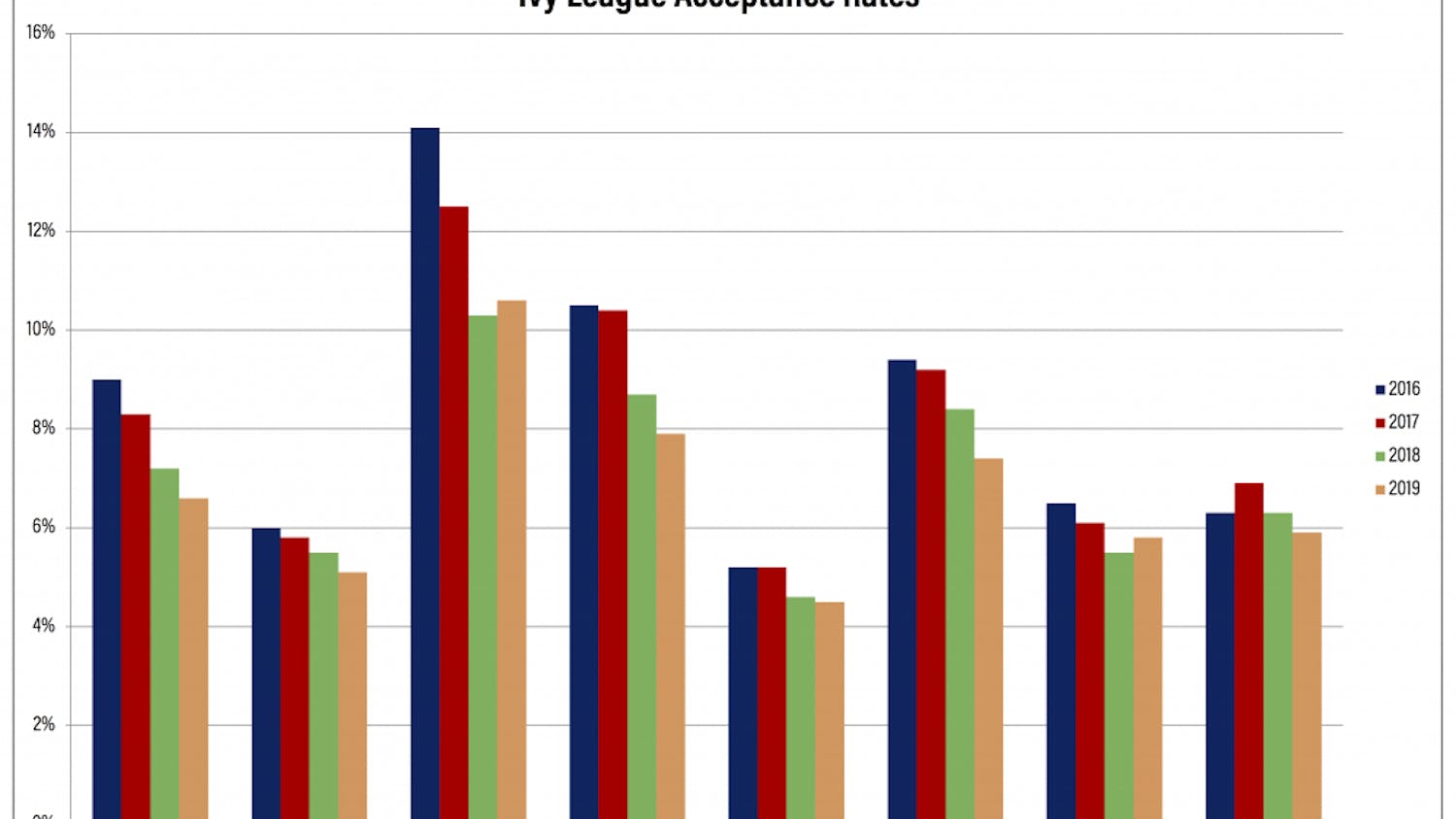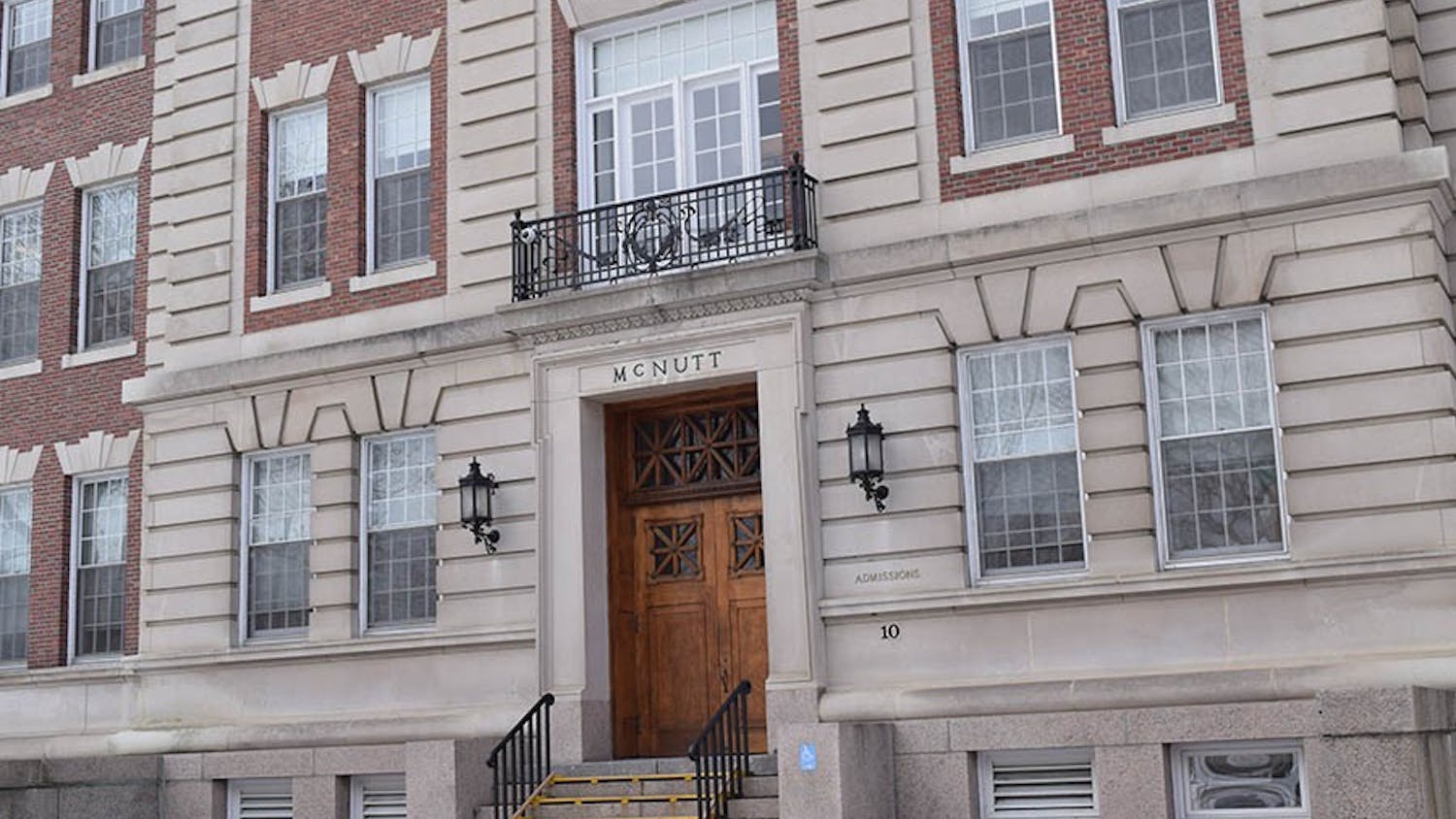Dartmouth and other elite colleges and universities across the country hope to admit top students. But according to a Nov. 5 Wall Street Journal article, some of these institutions will market themselves to weaker applicants as part of the numbers game of acceptance rates in college admissions.
When asked about this practice, Dartmouth’s director of admissions Paul Sunde said that Dartmouth does not engage in it. He also argued that other schools likely do not engage in it as well.
The Wall Street Journal article, titled, “For Sale: SAT-Takers’ Names. Colleges Buy Student Data and Boost Exclusivity” asserts that some of the country’s top 100 colleges and universities buy testing data from the College Board in order to woo students with scores below their desired benchmarks who will apply and inevitably get rejected. In this way, the practice artificially reduces that school’s acceptance rate and turns those students into “unknowing pawns.”
“I can’t literally speak for other places, because I don’t work at other places,” Sunde said. “But what I can tell you is that it is not in any institution’s best interest to market itself to students that it knows won’t be viable candidates. Maybe I’m just speaking for [Dartmouth], but that doesn’t make sense to me … You can see by the expression on my face that that’s just baffling to me.”
The article describes a nationwide trend of rapidly dropping acceptance rates and universities’ use of the Student Search Service or “Search” — an optional College Board program that point consenting students towards elite institutions.
“I was surprised that [the article] highlighted a recruitment practice that colleges have been using for decades,” wrote vice provost for enrollment and dean of admissions and financial aid Lee Coffin in an email statement. “The [Wall Street Journal] article seems to suggest [Search] is a new practice. It isn’t.”
Sunde confirmed that Dartmouth does participate in Search, and said that in his nearly 30 years working in college admissions, he had “never heard of the use of Search not going on.”
College Board spokesman Zachary Goldberg wrote in an email to The Dartmouth that Search is used by 1,900 colleges and universities and that it is both free and optional for students, but participants can opt out at any time. He noted that participants are also eligible for $300 million in scholarship opportunities through various scholarship organizations that partner with Search.
“Search helps launch a student’s future by connecting students with college and scholarship opportunities at the time when they begin thinking about postsecondary education, so they have time to get to know various colleges and make informed college choices,” Goldberg wrote. However, “[s]tudents must affirmatively declare their desire to begin a conversation with colleges and scholarship providers.”
Dartmouth also uses SAT and ACT testing data, as well as scores on AP and IB exams, alongside Search data to target especially promising applicants.
“The big way we’re using data is with standardized test scores, [which are] an important element of the holistic review process,” Sunde said. “That’s the vast majority of our dealings [with the College Board]. We participate in Search a relatively modest amount, because it’s only with very high expectations on student performance that we acquire a record [of student data].”
Sunde also noted that Search is just one part of Dartmouth’s much larger promotional effort toward prospective applicants.
“The work that we’re doing on our website, with social media, with our blogs, the travel that our admissions officers engage in, the visitor programming that we’re offering here on campus — those are all essential to what we do,” Sunde said.
Dartmouth tries to root its marketing in stories from current students and faculty members in order to help potential applicants get a sense of “Dartmouth’s values and Dartmouth’s strengths,” according to Sunde.
“And then, Search gives us the opportunity to invite some students who, based on what we can tell, look promising in the context of our applicant pool to participate in that process,” he added.
Even without Search, though, Sunde said that Dartmouth’s applicant pool gets better and more diverse each year.
“What we’re trying to do is develop an applicant pool that is robust, diverse, incredibly talented and promising,” he said. “It’s the students’ choice to be in our pool, and ultimately, the students’ choice to come to Dartmouth.”

Lauren ('23) is news executive editor for The Dartmouth. She is from Bethesda, Maryland, and plans to major in government and minor in public policy.




